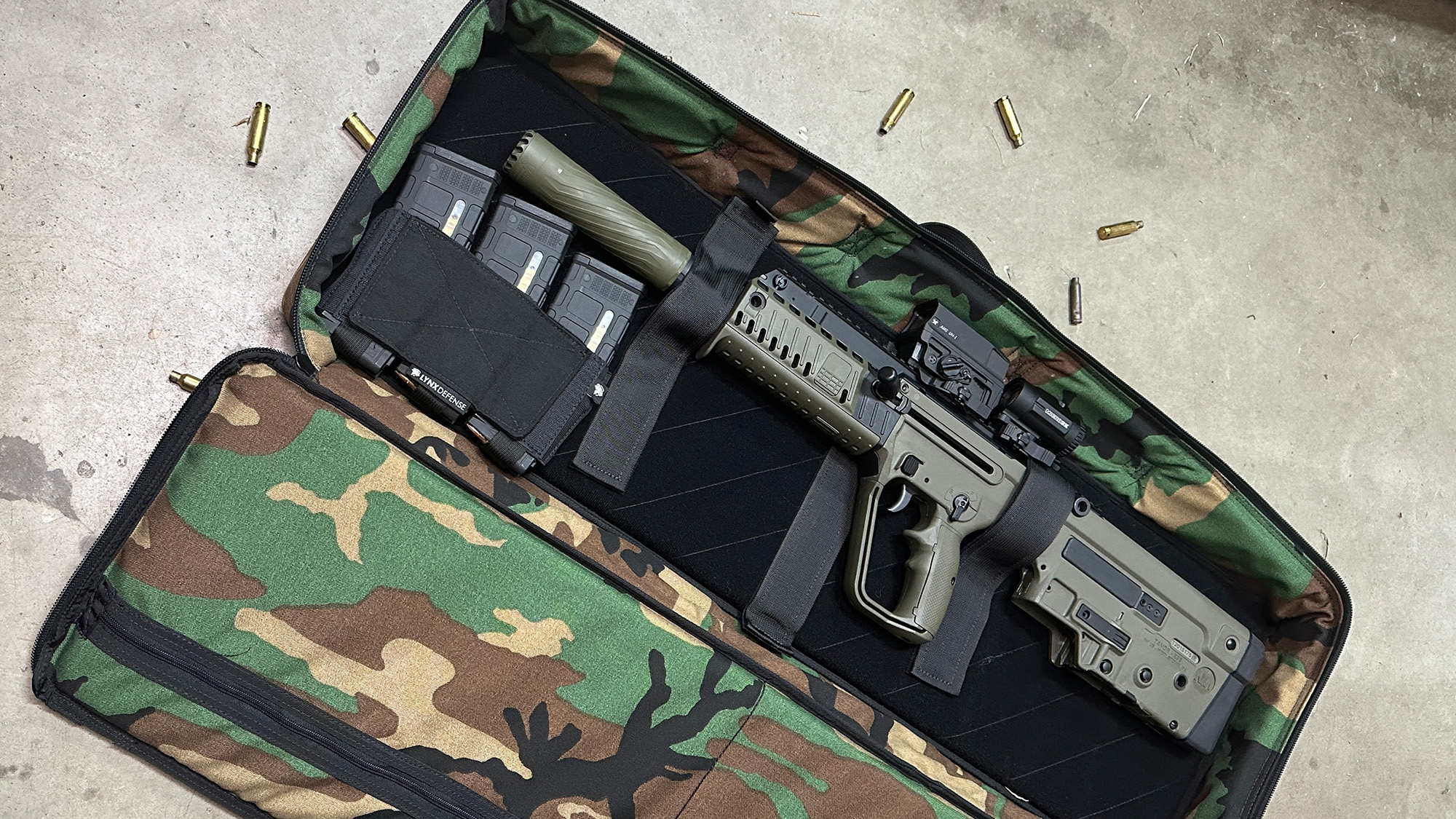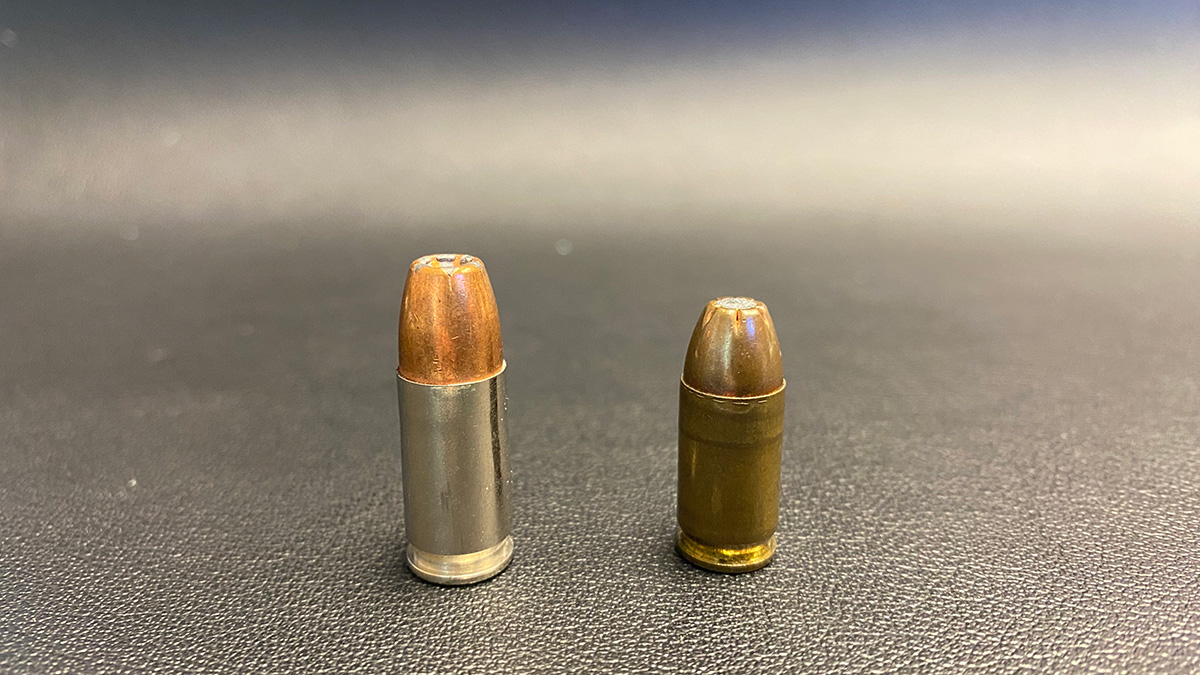
Ready to see what we have coming?
Lynx Defense will release some new things soon. Let us deliver them right to your inbox!

Lynx Defense will release some new things soon. Let us deliver them right to your inbox!
We may earn revenue from product links on this page and participate in affiliate programs. Learn More ›

When it comes to self-defense and concealed carry, selecting the right firearm and ammunition is paramount. Among the most popular choices for concealed carry handguns are the .380 ACP (Automatic Colt Pistol) and the 9mm Parabellum (also known as 9mm Luger or 9x19mm).
Both calibers have their devoted followings, and each has its own unique characteristics. In this in-depth analysis, we will delve into the differences between the .380 ACP and the 9mm, exploring factors such as ballistics, recoil, capacity, and the suitability of each caliber for self-defense purposes.
This has been a constant debate for years, much like .40 Caliber vs 9mm has, and while there are loyalists to both rounds, 9mm has won in terms of adoption and popularity.
Ballistics play a crucial role in the effectiveness of a caliber for self-defense.
The .380 ACP typically fires bullets with a diameter of .355 inches, and the 9mm Parabellum fires bullets of the same diameter.
However, the key difference lies in the cartridge’s length and the amount of gunpowder it can accommodate. The 9mm is longer and can hold more powder, which leads to higher velocity and energy compared to the .380 ACP.
The higher energy levels of the 9mm give it a clear advantage regarding terminal performance.
The greater velocity and energy allow for better penetration and expansion of bullets upon impact. This means that 9mm rounds are more likely to incapacitate a threat effectively compared to .380 ACP rounds.
Recoil is another critical factor to consider when choosing a caliber, particularly for concealed carry.
Recoil can significantly impact a shooter’s ability to control the firearm, accuracy, and follow-up shots.
Generally, firearms chambered in .380 ACP produce less recoil than their 9mm counterparts due to the lower powder charge and lighter bullets.
This can be an advantage for individuals with limited hand strength or those who are new to shooting.
In contrast, 9mm handguns tend to have more pronounced recoil.
However, this doesn’t mean that the recoil is unmanageable. Modern 9mm handguns often feature recoil-reducing technologies such as improved ergonomics, recoil springs, and grip textures, making them more comfortable to shoot.
Additionally, the added recoil of the 9mm can be mitigated through training and practice.
The trade-off between the two calibers lies in shootability.
While the .380 ACP offers less recoil, it also has lower stopping power.
On the other hand, the 9mm may have more recoil but provides superior terminal performance.
Shooters must weigh these factors against their individual needs and preferences.
Capacity and concealability are critical considerations for concealed carry firearms.
In most cases, handguns chambered in 9mm offer similar magazine capacities to those in .380 ACP.
The size and design of the firearm play a significant role in determining the magazine capacity.
However, as a general rule, a modern 9mm handgun can hold the same or more rounds compared to .380 ACP handgun of similar size.
The added capacity can be a significant advantage in self-defense situations where multiple shots may be required to neutralize a threat.
It also means fewer reloads and potentially quicker follow-up shots, which can be crucial in high-stress situations.
In terms of concealability, both .380 ACP and 9mm handguns are available in various sizes and configurations.
Smaller and more compact handguns are easier to conceal, making them popular choices for concealed carry.
While .380 ACP handguns are often slightly smaller due to the cartridge’s reduced power, many compact 9mm options are just as concealable.
Ammunition availability and cost are practical considerations that can influence your choice of caliber.
Historically, 9mm ammunition has been more readily available and more affordable than .380 ACP.
The popularity of the 9mm cartridge in law enforcement and military circles has led to a more extensive selection of ammunition types and brands.
This abundance of choice can benefit those seeking specific ammunition characteristics, such as hollow points or low-recoil loads.
Additionally, the cost of 9mm ammunition is often lower per round when compared to .380 ACP.
This cost difference can add up over time, especially if you engage in regular practice and training.
However, the price gap between the two calibers can vary based on location and market conditions.
Choosing 380 vs 9mm also involves selecting a suitable handgun platform.
The availability of firearms chambered in either caliber can vary, but both are relatively common choices for concealed carry.
When choosing a handgun, it’s important to consider factors such as ergonomics, size, weight, and ease of use.
The choice of handgun platform should align with your intended use, carry style, and personal preferences.
It’s essential to handle and, if possible, test-fire different handguns to determine which one feels most comfortable and natural in your hands.
Regardless of caliber, shot placement remains the most critical factor in stopping a threat effectively.
Accurate shot placement to vital areas such as the center of mass and head can incapacitate an attacker regardless of the caliber used.
Therefore, consistent and effective training is paramount for any concealed carry holder.
It’s crucial to consider your proficiency with the chosen caliber. If you are more comfortable and accurate with .380 ACP and can consistently place shots where they count, it may be a suitable choice for self-defense.
Conversely, if you can manage the recoil of the 9mm and achieve accurate shot placement, it offers improved terminal performance.
Investing in regular range practice and professional firearms training can help improve your skills and confidence with your chosen caliber.
Many factors, including grip, stance, trigger control, and follow-through, influence shot placement and training help refine these skills.
When it comes to choosing between 9mm and .380 for concealed carry, there are a few factors to consider. Both calibers offer advantages and disadvantages, so it ultimately comes down to personal preference and specific needs.
9mm is a popular choice for concealed carry due to its wider availability, greater capacity, and better ballistic performance compared to .380.
It generally offers more stopping power and a higher velocity, making it effective for self-defense situations.
Additionally, 9mm ammunition tends to be more affordable and easier to find in most locations.
On the other hand, .380 is known for being more compact and lightweight, making it easier to conceal.
It produces less recoil, making it a suitable option for those who may struggle with controlling a larger caliber.
While it may not have the same level of stopping power as 9mm, it can still be a compelling choice for personal protection.
Ultimately, the best caliber for concealed carry is the one that you feel comfortable and confident with. It is recommended to try out different firearms and calibers at a shooting range before making a decision.
Remember, shot placement and proper training are equally, if not more, important factors when it comes to self-defense. You should also consider concealed carry insurance if you plan to carry concealed.
I think you need to be more specific regarding stopping power. It would seem you are really talking about killing power. And if you have trained a bit and hit the person you are aiming at, the 380 will certainly be sufficient. We do know that people are easily killed with a 22LR bullet, and hence the major difference between the 380 and the 9mm is the larger number of 9 mm guns, 9mm ammo is cheaper and even more available vs. lower recoil of the 380. So if you are only buying a gun for self defence and not planning on shooting thousands of rounds every year because you are interested in shooting as such, then by all means go for the 380. You will be more certain to hit with a lower recoil, and the person on the other side of the barrel will in 99% of the cases stop when seeing that barrel pointing at him – or her.
My question is = Why is the USCCA membership and concealed carry insurance not allowed in New York State?